Search
Remove Ads
Advertisement
Summary 
Loading AI-generated summary based on World History Encyclopedia articles ...
Search Results
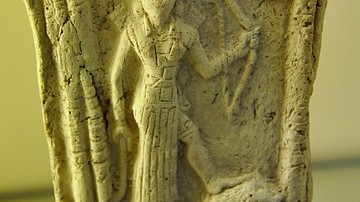
Definition
Ishtar
Ishtar (Inanna in Sumerian sources) is a primary Mesopotamian goddess closely associated with love and war. This powerful Mesopotamian goddess is the first known deity for which we have written evidence. While largely unknown in the modern...
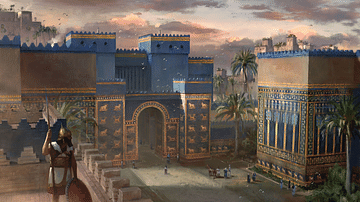
Definition
Ishtar Gate
The Ishtar Gate was constructed by the Babylonian King Nebuchadnezzar II circa 575 BCE. It was the eighth gate of the city of Babylon (in present-day Iraq) and was the main entrance into the city. The Ishtar Gate was part of Nebuchadnezzar's...

Interview
Author Interview: Son of Ishtar by Gordon Doherty
Today we sit down with Gordon Doherty to discuss his new book Empires of Bronze: Son of Ishtar. Based in the dark and cold north (i.e. Scotland), Gordon has written extensively on ancient Greece and Rome. His new novel, however, takes us...

Article
The Mesopotamian Pantheon
The gods of the Mesopotamian region were not uniform in name, power, provenance or status in the hierarchy. Mesopotamian culture varied from region to region and, because of this, Marduk should not be regarded as King of the Gods in the same...
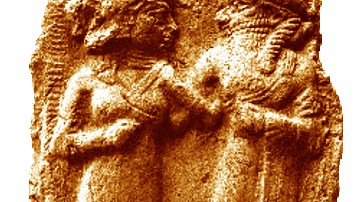
Definition
Inanna
Inanna is the ancient Sumerian goddess of love, sensuality, fertility, procreation, and also of war. She later became identified by the Akkadians and Assyrians as the goddess Ishtar, and further with the Hittite Sauska, the Phoenician Astarte...

Definition
Astarte
Astarte is the Canaanite/Phoenician goddess of love, sex, war, and hunting who developed from the Mesopotamian deity Inanna/Ishtar. She is usually associated with the storm god Baal but seems to have been much more popular. She traveled to...
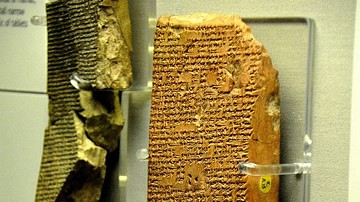
Image
Goddess Ishtar descent to the underworld tablet
The legend, written in Akkadian, describes how Ishtar, goddess of sexuality and warfare, went to the Underworld. Ishtar decided to undertake the journey, although the Underworld was known as the 'land of no return' for humans and gods alike...
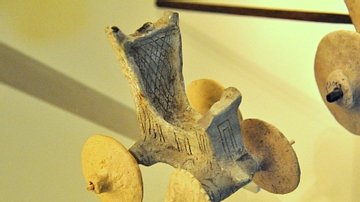
Image
Votive Toy from the Archaic Buildings of the Ishtar Temple
This small terracotta toy in the shape of a wagon was a votive donation to the goddess Ishtar. The Archaic buildings of the Ishtar temple were in use from 2500-2000 BCE. From the Archaic temples (or buildings) of Ishtar at the city of Ashur...
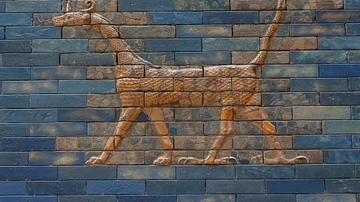
Image
Dragon from the Ishtar Gate
Detail from the Ishtar Gate of Babylon, built in 6th century BCE by king Nebuchadnezzar II; part of the Gate is now reconstructed in Pergamon Museum in Berlin.
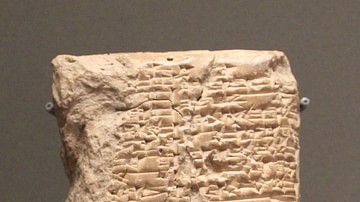
Image
Code of Lipit-Ishtar
Prologue to the Code of Lipit-Ishtar of Isin (r. c. 1870 to c. 1860 BCE), the fifth king of the First Dynasty of Isin.
Louvre, Paris.